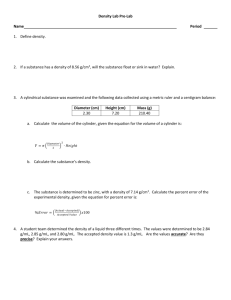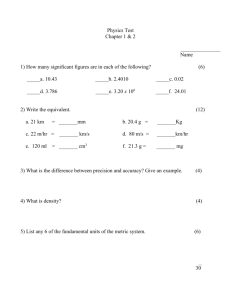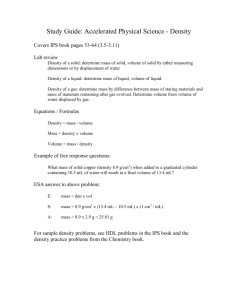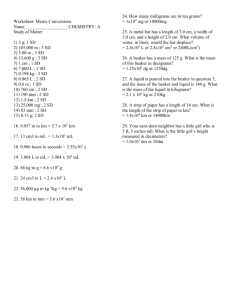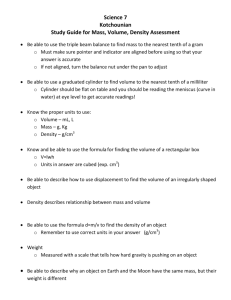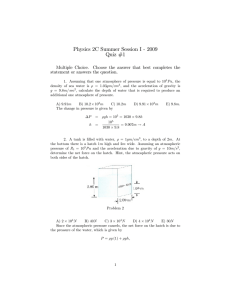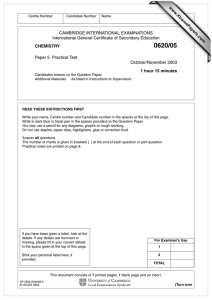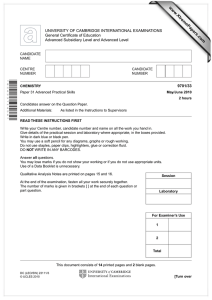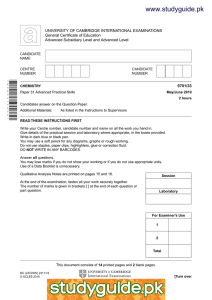Density notes
advertisement
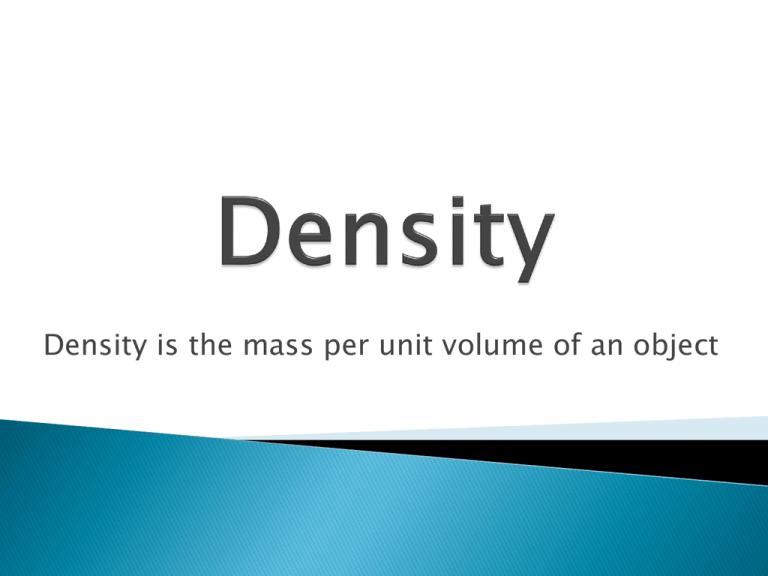
Density is the mass per unit volume of an object Density = mass Volume D=m V Density = love Mass and volume are extensive properties. These values change depending on how much material you have. Density is an intensive property. It does not change according to how much you have. Volume can be measure by Length x width x height or the Water Displacement method Materials of lower density will float on materials of greater density. Density of water is 1.0 g/cm3 1mL = 1cm3 The appropriate units of density are: ◦ g/cm3 for solids ◦ g/mL for liquids If you have various masses and volumes of an object you can graph your data and solve for the slope to find the density of that object. Slope = Δy Δx or y2 – y 1 x2 – x 1 X (cm3) 2 4 6 8 Y (g) 17.84 35.68 53.52 71.38 Plot X vs Y graph Ex. 1) A piece of beeswax with a volume of 8.50cm3 is found to have a mass of 8.060g. What is the density of the beeswax? Will it float or sink in a beaker full of H2O? Ex. 2) A sample of magnesium has a volume of 825.00 cm3 and a density of 1.74 g/cm3, what is the mass of Mg? Ex. 3) The volume of water in a graduated cylinder is 27.0 mL. A piece of lead is slowly dropped into the cylinder giving the volume to become 130.2 mL. Given that lead’s density is 11.3g/cm3 what is the mass of Pb? Ex. 4) An empty beaker has a mass of 25.83g. When it is filled with mercury, it’s new mass is 225.3g. If the density of mercury is 13.60 g/cm3, what is the volume of the beaker?
